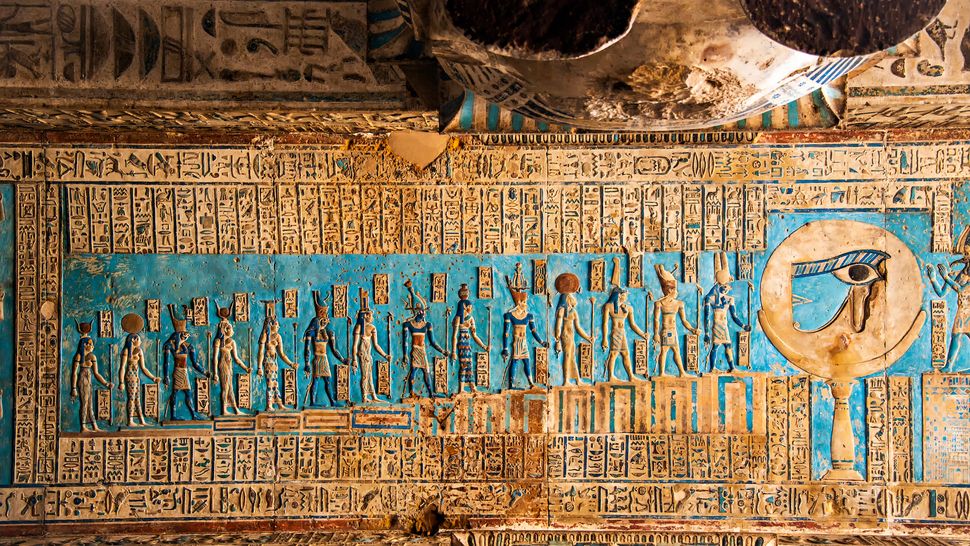How do we decipher Egyptian hieroglyphics and other ancient languages?
By Owen Jarus - Live Science Contributor 3 days ago
It took more than 20 years to translate the Rosetta stone.

Ancient Egyptian hieroglyphs on the ceiling of Hypostyle Hall within the Temple of Hathor in Egypt.
(Image credit: Paul Biris via Getty Images)
Some ancient societies had written languages, but deciphering their texts can be a Sisyphean task. So, how do experts figure out how to translate ancient words into modern ones?
The answer is multifaceted, but one famous example embodies some of the best practices: the decoding of the Rosetta stone, discovered by a French military expedition in Egypt in July 1799, which helped pave the way to the decipherment of Egyptian hieroglyphs.
The stone contains a decree of Ptolemy V that was inscribed in three writing systems: Egyptian hieroglyphics, demotic script (used by the Egyptians between the seventh century B.C. and the fifth century A.D.) and ancient Greek. Written in 196 B.C., the decree stated that Egyptian priests agreed to crown Ptolemy V pharaoh in exchange for tax breaks. At the time, Egypt was governed by a dynasty of rulers descended from Ptolemy I, one of Alexander the Great's Macedonian generals.
At the time the stone was discovered, both hieroglyphics and demotic script were undeciphered, but ancient Greek was known. The fact that the same decree was preserved in three languages meant that scholars could read the Greek portion of the text and compare it with the hieroglyphic and demotic portions to determine what the equivalent parts were.
More:
https://www.livescience.com/how-decipher-ancient-languages.html
